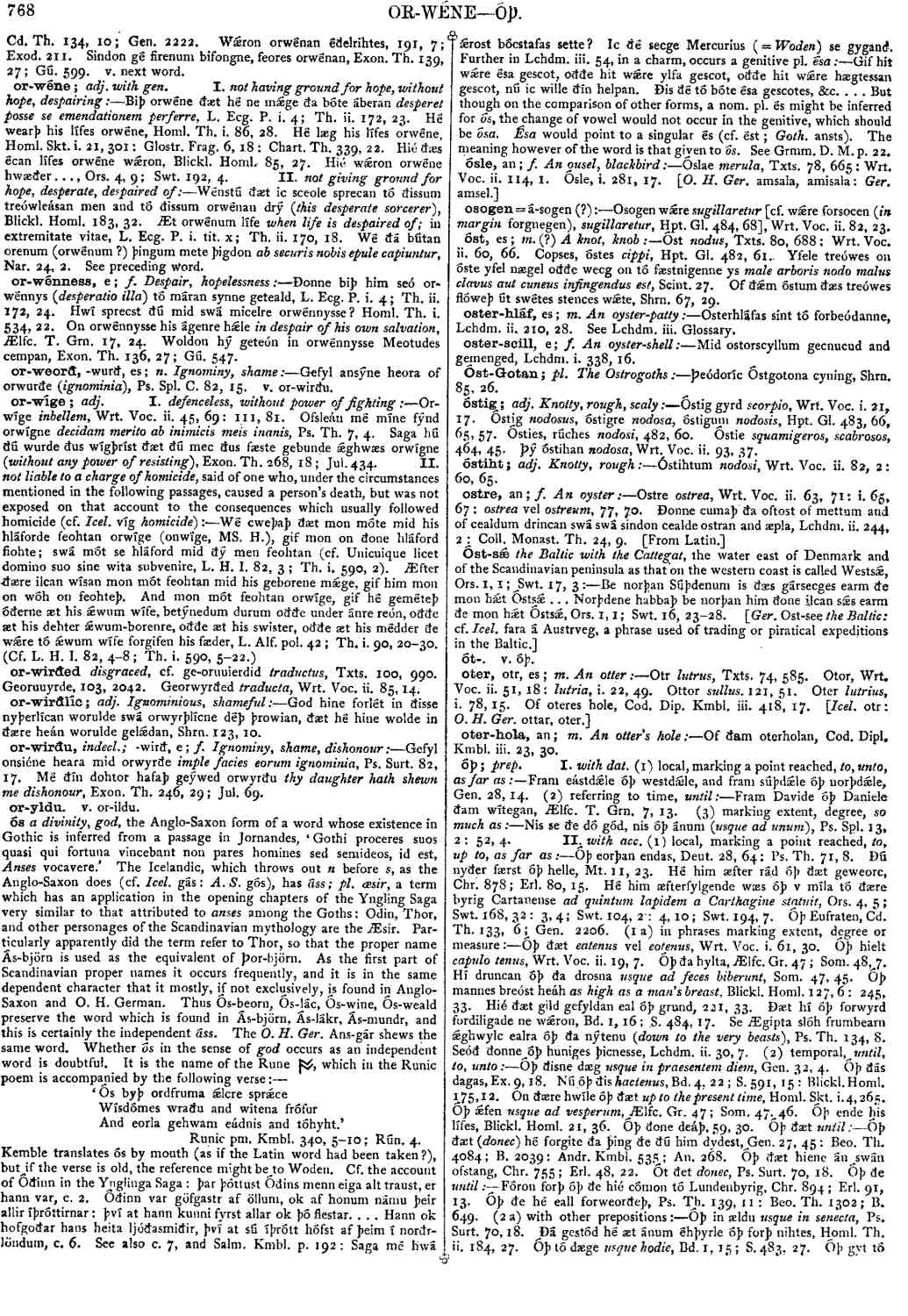ós
- noun [ masculine ]
-
'Ós byþ ordfruma ǽlcre sprǽce Wísdómes wraðu and witena frófur And eorla gehwam eádnís and tóhyht.' Runic pm. Kmbl. 340,
- 5-10; Rún. 4.
- Grmm. D. M. p. 22.
Bosworth, Joseph. “ós.” In An Anglo-Saxon Dictionary Online, edited by Thomas Northcote Toller, Christ Sean, and Ondřej Tichy. Prague: Faculty of Arts, Charles University, 2014. https://bosworthtoller.com/25014.
Checked: 0